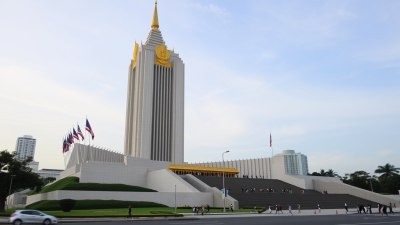How Sports Travel Impacts Local Communities
Discover the profound effects of sports travel on local communities, economies, and cultural exchange.

Image by rawpixel-com on Freepik
Sports travel has become a significant aspect of the global economy, influencing not just the sports industry but also local communities across the world. From international tournaments that draw thousands of fans to local sports events that encourage domestic tourism, the impact of sports-related travel is profound.
One of the most apparent effects of sports travel is its ability to boost local economies. When cities host major sporting events like the Olympics, World Cup, or even regional tournaments, they experience an influx of visitors. These visitors spend money on accommodations, food, transportation, and entertainment. According to studies, hosting a major sports event can generate millions in economic impact, creating jobs and supporting local businesses.
For instance, local hotels and restaurants often see a dramatic increase in revenue during these events. Hotels may become fully booked, and restaurants often need to hire additional staff to accommodate the increased demand. Moreover, local vendors may pop up around sports venues, offering food, merchandise, and services that cater to tourists and fans. This creates an opportunity for small businesses to thrive as they tap into the spending power of sports travelers.
Additionally, sports travel can have a significant social impact on local communities. Events can foster a sense of pride and community spirit among residents. When their hometown is showcased on an international stage, locals often rally together to support their athletes and community. This sense of solidarity can lead to increased volunteering and community engagement, as residents feel motivated to contribute to the success of the event.
However, it’s essential to recognize that the impact of sports travel can vary widely among local communities. Some areas, especially those that are not prepared for the influx of visitors, may face challenges. Overcrowding, traffic congestion, and strain on local infrastructure are common issues that communities might encounter. Planning and preparation are crucial for mitigating these challenges, including improving transportation systems and ensuring adequate public services to handle increased demand.
Moreover, there exists the potential for cultural exchange through sports travel. International events bring people from diverse backgrounds together, promoting cross-cultural understanding and connections. Fans from different countries often interact, share experiences, and celebrate their cultures through the lens of sports. This aspect of sports travel can lead to lasting friendships and a broader appreciation for global diversity.
Furthermore, the influence of sports travel extends beyond immediate economic benefits. The long-term impact can lead to infrastructure improvements, including stadium upgrades, transportation enhancements, and public spaces revitalization. Communities often invest in legacy projects during or after major events to ensure that residents can enjoy the benefits of improved facilities long after the crowds have departed.
Investment in sports facilities can also encourage local youth participation in sports, promoting healthier lifestyles. When communities invest in state-of-the-art sports venues or recreational facilities, they often see a rise in youth engagement in sports activities. This not only benefits physical health but also helps in developing teamwork, discipline, and leadership skills among young people.
Moreover, tourism and sports often go hand-in-hand. Major sporting events can act as catalysts for tourism, attracting visitors even during non-event periods. This sustained interest can lead to year-round tourism opportunities, prompting local businesses to diversify their offerings to cater to visitors outside of sporting events. Activities such as guided tours, cultural experiences, and local attractions can supplement the income generated by sports tourism.
However, it’s crucial for local governments and organizers to consider the sustainability of these impacts. Sustainability in sports travel involves balancing economic growth with social and environmental responsibilities. Communities should strive to minimize their carbon footprint, promote fair labor practices, and ensure that the benefits of sports travel are distributed equitably among residents. Sustainable practices include investing in public transportation, reducing waste, and supporting local artisans and small businesses to keep money within the community.
Education and awareness campaigns can also play a vital role in fostering a culture of sustainability among both tourists and locals. By promoting responsible tourism and encouraging visitors to respect local customs and environments, communities can enhance their image and create a welcoming atmosphere. This approach not only enriches the experience for tourists but also benefits residents by preserving the local environment and culture.
The realm of sports travel is continually evolving, influenced by trends such as the rise of e-sports, increasing female participation in sports, and the growing emphasis on inclusivity in sporting events. Each of these trends presents unique opportunities and challenges for local communities impacted by sports travel.
For instance, the rise of e-sports has generated interest from younger demographics and presented a new avenue for communities to explore in terms of event hosting and tourism. Local businesses can capitalize on this trend by catering to the e-sports audience, from hosting viewing parties to organizing local gaming tournaments.
Moreover, the increasing focus on female participation in sports has significant implications for local communities. By hosting events that showcase women in sports, communities can promote gender equality, inspire young girls and women, and encourage broader participation in various sports. This not only has social implications but also provides economic opportunities in terms of attracting sponsors and increasing participation at grassroots levels.
Inclusivity remains a critical aspect of sports travel. Ensuring that events are accessible to people of all abilities encourages a more inclusive environment where everyone can participate and enjoy sports. This commitment to inclusivity can lead to more diverse audiences and a deeper appreciation of the unifying power of sports.
In conclusion, sports travel profoundly impacts local communities, bringing economic benefits, fostering social cohesion, promoting cultural exchange, and encouraging sustainability. While there are challenges that come with hosting sports events, with careful planning and consideration, communities can harness the power of sports travel to create lasting positive changes. As we look to the future, the potential for sports travel to transform local communities continues to grow, and embracing this positive influence can lead to vibrant, engaged, and economically prosperous neighborhoods.











